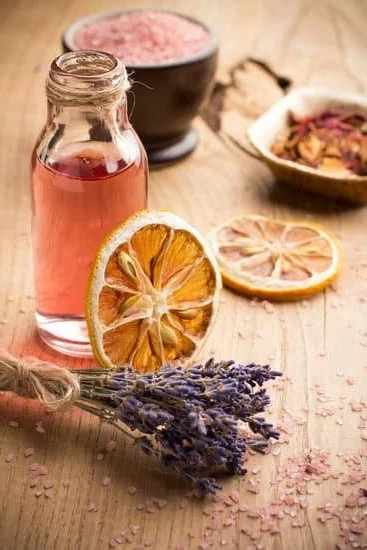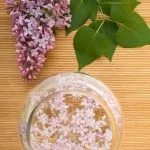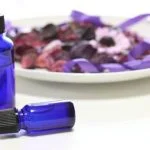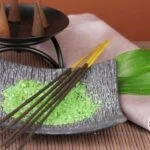Aromatherapy water has gained significant popularity among individuals who are seeking natural ways to enhance their well-being. As more people embrace holistic approaches to health and self-care, aromatherapy water has emerged as a powerful tool in promoting relaxation, improving mood, and alleviating stress. In this article, we will explore the concept of aromatherapy water, its benefits, and how it can be used to enhance overall well-being.
Aromatherapy itself is a holistic healing practice that utilizes essential oils extracted from plants to promote physical, mental, and emotional well-being. With its origins dating back thousands of years, aromatherapy has been used by various cultures throughout history for its therapeutic properties. By harnessing the potent fragrances and healing properties of essential oils, aromatherapy works by stimulating our senses and influencing our moods, emotions, and physiological responses.
Aromatherapy water specifically refers to the infusion of essential oils into water. This method allows for easy diffusion of the aromatic molecules in the air or when applied directly on the skin. Aromatherapy water provides a convenient way to experience the beneficial effects of essential oils without requiring complex preparations or specialized equipment. It can be incorporated into various aspects of daily life, including skincare routines, haircare rituals, room sprays, and even bath time rituals.
Understanding Aromatherapy
Aromatherapy is a therapeutic practice that has been used for centuries to enhance well-being and promote overall health. It involves the use of essential oils, which are concentrated plant extracts, to stimulate the senses and promote physical and emotional healing. Aromatherapy has gained popularity in recent years as individuals seek natural alternatives to traditional healthcare.
Origins of Aromatherapy:
Aromatherapy can be traced back thousands of years to ancient civilizations such as the Egyptians, Greeks, and Romans. These cultures recognized the healing properties of plants and used aromatic herbs for medicinal purposes. In the early 20th century, French chemist René-Maurice Gattefossé coined the term “aromatherapy” after discovering the profound effects of lavender oil on his own burn wounds. Since then, aromatherapy has evolved into a holistic practice that incorporates various techniques and applications.
Benefits of Aromatherapy:
One of the main benefits of aromatherapy is its ability to promote relaxation and relieve stress. Certain essential oils, such as lavender and chamomile, have calming properties that can help reduce anxiety and improve sleep quality. Aromatherapy can also uplift mood and enhance mental clarity. Citrus oils like lemon and orange are known for their mood-boosting effects, while oils like peppermint can increase focus and alertness.
Aromatherapy offers a wide range of benefits for both physical and emotional well-being. Some essential oils have anti-inflammatory properties that can help relieve pain associated with headaches or muscle aches. Eucalyptus oil, for example, is commonly used to alleviate respiratory congestion. Additionally, certain essential oils have antimicrobial properties that can support immune function.
Methods of Application:
There are several methods by which aromatherapy can be practiced. Inhalation is one common method in which essential oils are diffused into the air through a diffuser or by simply inhaling the aroma directly from the bottle. This method allows the scent molecules to enter the nasal cavity, where they can stimulate the olfactory system and influence brain activity.
Topical application is another popular way to experience aromatherapy. Essential oils can be diluted in carrier oils, such as jojoba or almond oil, and applied directly to the skin. This method allows for absorption into the bloodstream, allowing the beneficial properties of the essential oils to be absorbed by the body.
Aromatherapy can also be enjoyed through immersion in a bath or during massage therapy. Adding a few drops of essential oils to bathwater or using them in massage oils can enhance relaxation and provide a spa-like experience.
Overall, understanding aromatherapy is crucial in fully grasping the concept of aromatherapy water. The next section will further define and explain what exactly aromatherapy water refers to, setting it apart from other aromatherapy products.
Defining Aromatherapy Water
Aromatherapy water is a specific type of aromatherapy product that involves the use of essential oils infused in water. This unique combination creates a gentle and soothing experience, allowing individuals to benefit from the therapeutic properties of essential oils in a more diluted form. Unlike other aromatherapy products, such as essential oil diffusers or massage oils, aromatherapy water can be used directly on the skin, in baths, as room sprays, or even as refreshing facial mists.
Essential oils are highly concentrated plant extracts that contain the natural scent and beneficial properties of the plant. When combined with water, the essential oil molecules disperse throughout the liquid, creating an aromatic solution that can be easily absorbed through inhalation or topical application. It is important to note that aromatherapy water is different from floral waters or hydrosols, which are produced during the process of steam distillation when extracting essential oils from plants.
Aromatherapy water offers a more subtle and gentle approach to aromatherapy compared to other methods. The diluted nature of these waters makes them suitable for individuals with sensitive skin or those who prefer a lighter fragrance.
It also allows for various applications and versatility in use while still providing the therapeutic benefits of essential oils. Whether it’s used as a mist to freshen up a room, added to bathwater for relaxation, or spritzed on the face for a quick pick-me-up, aromatherapy water provides an easy and convenient way to incorporate aromatherapy into daily routines.
In summary, aromatherapy water refers to the infusion of essential oils in water, creating a diluted yet effective solution for various applications. Its distinctiveness lies in its versatility and gentleness compared to other forms of aromatherapy products. By utilizing this combination, individuals can experience the benefits of essential oils while enjoying soothing scents and improving their overall well-being.
The Science behind Aromatherapy Water
Aromatherapy water is an increasingly popular method of incorporating essential oils into daily wellness routines. But what exactly is the science behind the effectiveness of aromatherapy water? To understand this, it’s important to delve into the molecular components of essential oils and their interaction with water.
Essential oils, the foundation of aromatherapy, are highly concentrated plant extracts that capture the aromatic compounds from various plants. These compounds contribute to the plant’s unique scent as well as its therapeutic properties. When essential oils are added to water, they undergo a process called dispersion, where the oil molecules disperse throughout the water molecules.
The interaction between essential oils and water is primarily due to the chemical nature of each component. Essential oils consist of volatile organic compounds (VOCs) that are made up of small molecules capable of evaporating quickly and easily. These VOCs can be readily dissolved in water and hence can be effectively dispersed throughout it.
To maximize the efficacy of aromatherapy water, it is crucial to choose essential oils with smaller molecules that can easily mix with and dissolve in water. Some essential oils have smaller molecules than others, making them more suitable for use in aromatherapy waters. Examples include citrus oils like lemon or lime oil, which have smaller molecular structures and blend well with water.
When we inhale or come into contact with aromatherapy water containing essential oils, our olfactory system gets activated. The tiny particles inhaled through our nose stimulate specialized receptors that send signals to our brains, triggering emotional responses and influencing our overall well-being. This is why aromatherapy water has been known to promote relaxation, improve mood, alleviate stress, boost energy levels, and enhance overall health.
By understanding the scientific principles underlying the effectiveness of aromatherapy water, individuals can make informed choices when selecting essential oils for their own personal blends. Whether it’s using floral-infused waters or herbal concoctions blended with specific essential oils, the molecular components and interactions between essential oils and water play a vital role in harnessing the therapeutic benefits of aromatherapy.
Benefits of Aromatherapy Water
Aromatherapy water offers a wide range of benefits that can promote relaxation, improve mood, alleviate stress, boost energy, and enhance overall well-being. The use of aromatherapy water is gaining popularity among individuals seeking natural ways to improve their mental and emotional health.
Promotes Relaxation
One of the key benefits of aromatherapy water is its ability to promote relaxation. The soothing scents of essential oils infused in the water help calm the mind and relax the body. When used in a diffuser or sprayed on pillows and linens before bedtime, aromatherapy water can create a calming environment that promotes better sleep.
Improves Mood
Aromatherapy water can also have a positive impact on mood. Essential oils, when inhaled or applied topically through aromatherapy water, can affect the limbic system in the brain, which controls emotions. Certain scents such as lavender and citrus have been found to uplift mood, reduce feelings of anxiety and depression, and increase overall emotional well-being.
Alleviates Stress
Many people turn to aromatherapy water as a natural way to alleviate stress. The aroma of essential oils released through steam inhalation or misting sprays triggers a relaxation response in the body, reducing stress hormone levels such as cortisol. Inhaling these calming scents can help relieve tension and bring about a sense of calm during stressful situations.
Boosts Energy
In addition to its relaxing qualities, aromatherapy water can also boost energy levels. Certain invigorating scents like peppermint and eucalyptus have stimulating properties that can help increase alertness and mental clarity. A quick spritz of energizing aromatherapy water throughout the day or during moments of fatigue can provide a natural pick-me-up.
Enhances Overall Well-being
Using aromatherapy water regularly can contribute to enhanced overall well-being. The combination of pleasing scents, relaxation, stress reduction, and mood improvement can have a cumulative effect on one’s mental and physical health. Aromatherapy water provides individuals with a natural and accessible tool for self-care, helping them achieve balance and wellness in their daily lives.
Different Types of Aromatherapy Water
Aromatherapy water offers a wide range of options for individuals looking to incorporate natural scents and therapeutic benefits into their daily lives. There are several different types of aromatherapy water available, each offering unique properties and potential benefits. Some of the most popular options include floral-infused waters, herbal concoctions, and citrus-based blends.
Floral-infused waters are created by infusing distilled water with the aroma of various flowers. This process involves soaking flower petals or blossoms in water until the natural fragrance is absorbed. Popular choices for floral-infused aromatherapy water include rosewater, lavender water, and chamomile water. These floral waters not only provide a pleasant scent but also offer potential benefits such as relaxation, stress relief, skin hydration, and mood enhancement.
Herbal concoctions involve infusing herbs or herb essences into water to create aromatic solutions with therapeutic properties. Commonly used herbs for this purpose include peppermint, eucalyptus, sage, and thyme. Herbal aromatherapy waters are often used to relieve respiratory congestion, improve focus and concentration, ease headaches or migraines, and promote mental clarity.
Citrus-based blends are created by extracting the essential oils from citrus fruits such as lemon, orange, grapefruit, or bergamot and combining them with water. Citrus aromas are known for their invigorating and uplifting qualities. Citrus-based aromatherapy waters can help improve mood, boost energy levels, provide mental stimulation, and act as natural air fresheners.
Overall, the different types of aromatherapy water offer an array of scents and potential health benefits. Each type appeals to different preferences or intentions for use. Whether you desire relaxation from floral-infused waters or an energy boost from citrus blends or need respiratory relief from herbal concoctions; there is an aromatherapy water option suitable for everyone’s needs.
| Type of Aromatherapy Water | Main Benefits |
|---|---|
| Floral-infused waters (e.g., rosewater, lavender water, chamomile water) | Relaxation, stress relief, skin hydration, mood enhancement. |
| Herbal concoctions (e.g., peppermint, eucalyptus, sage, thyme) | Respiratory relief, focus and concentration improvement, headache or migraine relief, mental clarity. |
| Citrus-based blends (e.g., lemon, orange, grapefruit, bergamot) | Mood improvement, energy boost, mental stimulation, air freshening. |
How to Use Aromatherapy Water
Aromatherapy water can be a versatile and effective addition to your daily wellness routine. Here are step-by-step instructions on how to incorporate aromatherapy water into different aspects of your daily life:
- Skincare: Aromatherapy water can be used as a refreshing facial toner or a soothing mist for the skin. After cleansing your face, simply spritz the aromatherapy water onto your face, or apply it using a cotton pad. This can help balance the skin’s pH levels, hydrate the skin, and provide a rejuvenating effect.
- Haircare: Aromatherapy water can also benefit your hair by giving it a natural shine and fragrance. To use aromatherapy water in your haircare routine, fill a spray bottle with the chosen aromatherapy water, and mist it onto your hair after shampooing and conditioning. You can also spray it onto your comb or brush before styling your hair to distribute the aroma evenly.
- Room Sprays: Aromatherapy water can be used to create a calming atmosphere in any room of your house. Fill a spray bottle with aromatherapy water and spritz it around the room to freshen up the air and add a pleasant fragrance. You can also combine different aromatherapy waters to create personalized blends for different moods or occasions.
- Bath Rituals: Adding aromatherapy water to your bathwater can elevate your bathing experience by creating a spa-like ambiance. Before getting into the tub, pour about 1 cup of aromatherapy water directly into the running bathwater. The steam from the warm water will release the aroma of the essential oils in the aromatherapy water, helping you relax and unwind.
Remember to always store your aromatherapy waters in dark glass bottles away from direct sunlight, as this helps preserve their potency. Additionally, perform patch tests before using them on larger areas of skin to ensure that you aren’t allergic or sensitive to any of the ingredients. With these simple instructions, you can start incorporating aromatherapy water into your skincare routine, haircare routine, room sprays, and bath rituals for a natural and holistic approach to well-being.
DIY Aromatherapy Water Recipes
In this section, we will provide readers with a variety of DIY aromatherapy water recipes that they can easily create at home using readily available ingredients and essential oils. Making your own aromatherapy water allows for customization, ensuring that you are creating the perfect blend to suit your individual preferences and wellness needs.
One popular recipe is a lavender-infused aromatherapy water. Lavender is known for its calming and relaxing properties, making it ideal for promoting sleep or reducing anxiety. To make lavender aromatherapy water, you will need:
- 1 cup distilled water.
- 10-12 drops of lavender essential oil.
Simply mix the distilled water and lavender essential oil together in a spray bottle. Shake well before each use. This aromatic spray can be used as a room freshener or spritzed onto pillows and linens for a soothing scent.
Another refreshing option is a citrus-based aromatherapy water. Citrus scents are invigorating and mood-boosting, making this recipe perfect for energizing yourself in the morning or combating fatigue. Here’s what you’ll need:
- 1 cup distilled water.
- 5-7 drops of lemon essential oil.
- 5-7 drops of orange essential oil.
Combine all the ingredients in a spray bottle and shake well to blend. This rejuvenating spray can be used as a facial mist, body refresher, or even as an air freshener.
If you’re looking to promote focus and concentration, a peppermint-infused aromatherapy water may be just what you need. Peppermint has stimulating properties that can enhance mental clarity and reduce mental fatigue. For this recipe, gather:
- 1 cup distilled water.
- 8-10 drops of peppermint essential oil.
Mix the distilled water and peppermint essential oil in a spray bottle, ensuring that they are well combined. Use this revitalizing spray on your workspace or mist it around the room to invigorate your senses.
By providing these DIY aromatherapy water recipes, readers can enjoy the benefits of customized aromatherapy experiences and create their own unique blends. Experiment with different essential oils and find the combinations that resonate with you the most.
Shopping Guide
When it comes to finding high-quality aromatherapy water products, there are several options available both online and in local stores. Whether you prefer the convenience of shopping online or enjoy browsing through physical stores, there are various avenues you can explore to find the perfect aromatherapy water for your needs.
Online retailers offer a wide range of choices and often provide detailed product descriptions, customer reviews, and ratings to help you make an informed decision. Some popular online platforms for purchasing aromatherapy water include:
- Amazon: This e-commerce giant offers a vast selection of aromatherapy water products from different brands. You can easily compare prices, read reviews from other customers, and have your chosen product delivered right to your doorstep.
- Etsy: If you’re looking for unique, handmade aromatherapy waters, Etsy is the go-to platform. Many independent sellers on this marketplace create their own blends with natural and organic ingredients.
- Aromatherapy Specialty Stores: There are numerous online retailers specializing in aromatherapy products that offer a wide range of high-quality aromatherapy waters. These stores often source their products directly from reputable manufacturers or create their own blends using pure essential oils.
On the other hand, if you prefer the personalized experience of physically shopping in-store, many local health food stores, natural product shops, spas, or wellness centers carry a selection of aromatherapy water products as well. Here are some tips for finding these products locally:
- Local Health Food Stores: Check out health food stores or natural product markets in your area as they often carry an array of essential oil-based products including aromatherapy waters.
- Specialty Wellness Stores: Look for specialty wellness stores or boutiques that focus on holistic healing practices such as herbal remedies and aromatic therapies. These locations may have a dedicated section for aromatherapy waters.
- Spas and Wellness Centers: Visit local spas or wellness centers that prioritize natural and holistic approaches to relaxation and well-being. Many of these establishments carry high-quality aromatherapy water products as part of their retail offerings.
Remember to always check the ingredient list and choose brands that prioritize natural, pure, and organic ingredients. Opting for reputable brands or handmade products from trusted sources can ensure the quality and effectiveness of your aromatherapy water.
| Online Retailer | Physical Store |
|---|---|
| Amazon | Local Health Food Stores |
| Etsy | Specialty Wellness Stores |
| Aromatherapy Specialty Stores | Spas and Wellness Centers |
Precautions and Considerations
Understanding Potential Allergic Reactions
When using aromatherapy water, it is essential to be aware of potential allergic reactions that may occur. While aromatherapy water is generally safe for most individuals, certain essential oils and botanical ingredients can cause allergic responses in some people. These allergic reactions can manifest as skin irritations, rashes, itching, redness, or even respiratory issues such as difficulty breathing or asthma attacks.
It is important to note that each individual’s sensitivity to essential oils and other aromatic substances may vary. What works well for one person may not work well for another. It is wise to perform a patch test before using any new aromatherapy water product by applying a small amount to a small area of the skin and waiting 24 hours to observe any negative reactions.
Skin Sensitivities and Dilution
In addition to potential allergies, individuals should also pay attention to their skin sensitivities when using aromatherapy water. Some essential oils are known to be more potent and can cause skin irritation or photosensitivity when applied directly without dilution. It is crucial to dilute essential oils properly in carrier oils or other suitable mediums before incorporating them into aromatherapy water.
The general rule of thumb for diluting essential oils is to use a maximum concentration of 2% in the final product. This means adding approximately 12 drops of essential oil per ounce of carrier liquid (such as distilled water) used in the aromatherapy water blend. For those with sensitive skin or who are new to using essential oils, it may be advisable to start with an even lower dilution rate to reduce the risk of any adverse reactions.
Safety Guidelines and Consulting Professionals
To ensure safe usage of aromatherapy water, it is highly recommended that individuals consult with professionals before incorporating these products into their wellness routines. Aromatherapists, naturopaths, or other knowledgeable practitioners can provide personalized guidance based on an individual’s unique health history and specific needs.
Furthermore, it is crucial to source high-quality aromatherapy water products from reputable sources. It is recommended to purchase from trusted brands or retailers specializing in natural wellness products. Read product labels carefully and look for certifications such as organic or cruelty-free as indicators of quality.
By following these precautions and considerations, individuals can safely enjoy the benefits of aromatherapy water while minimizing potential risks. As with any wellness practice, it is essential to prioritize personal well-being and make informed choices to enhance overall health and vitality.
Conclusion
In conclusion, aromatherapy water has become increasingly popular among individuals seeking natural ways to enhance their well-being. Throughout this article, we have explored the concept of aromatherapy water and its many benefits. We have learned that aromatherapy water refers to the infusion of essential oils into water, creating a versatile product that can be used in various applications.
One of the key points discussed is the science behind aromatherapy water. The molecular components of essential oils interact with water to create a powerful concoction that promotes relaxation, improves mood, alleviates stress, boosts energy, and enhances overall well-being. This scientific foundation gives credibility to the effectiveness of aromatherapy water as a wellness solution.
We have also highlighted the wide range of aromatherapy water options available. From floral-infused waters to herbal concoctions and citrus-based blends, there is something for everyone’s preferences and needs. Additionally, we provided step-by-step instructions on how to incorporate aromatherapy water into daily routines for skincare, haircare, room sprays, and bath rituals.
Furthermore, we shared DIY recipes for readers to create their own aromatherapy waters using readily available ingredients and essential oils. This not only empowers individuals to customize their experience but also allows them to save money and ensure the purity of the ingredients used.
Frequently Asked Questions
What is water based aromatherapy?
Water based aromatherapy refers to the use of essential oils or aromatic substances in conjunction with water. This can be achieved through various methods such as adding essential oils to bathwater, using a diffuser that emits steam infused with essential oils, or even employing a hot towel with added essential oils for inhalation.
By combining the properties of water and aromatic substances, this form of aromatherapy allows for the dispersion and inhalation of therapeutic scents that may promote relaxation or other desired effects.
What does aromatherapy do for you?
Aromatherapy offers a range of potential benefits for individuals. One primary function is promoting relaxation and relieving stress. Certain scents have been found to have a calming effect on the mind and body, helping reduce anxiety and induce a sense of tranquility.
Beyond relaxation, aromatherapy can also enhance mood and improve overall well-being. Different essential oils have unique properties that can uplift spirits, energize the mind, or even aid in sleep quality. In some cases, aromatherapy may also provide relief from certain ailments such as headaches or congestion.
Is aromatherapy good or bad for you?
Whether aromatherapy is good or bad for an individual depends on several factors. Generally speaking, when used correctly and in moderation, aromatherapy is considered safe for most people. However, it is important to note that some individuals may have sensitivities or allergies to specific aromatic compounds found in essential oils, which could cause adverse reactions like skin irritation or respiratory issues.
Likewise, certain scents may trigger migraines or worsen existing conditions in susceptible individuals. Therefore, it is crucial to exercise caution when using aromatherapy and consult with a healthcare professional if you have any underlying health concerns or are pregnant before incorporating it into your routine. Adhering to proper dilution ratios and usage guidelines is vital for ensuring safe and beneficial experiences with aromatherapy.

Are you looking for a natural way to improve your health and wellbeing?
If so, aromatherapy may be the answer for you.





